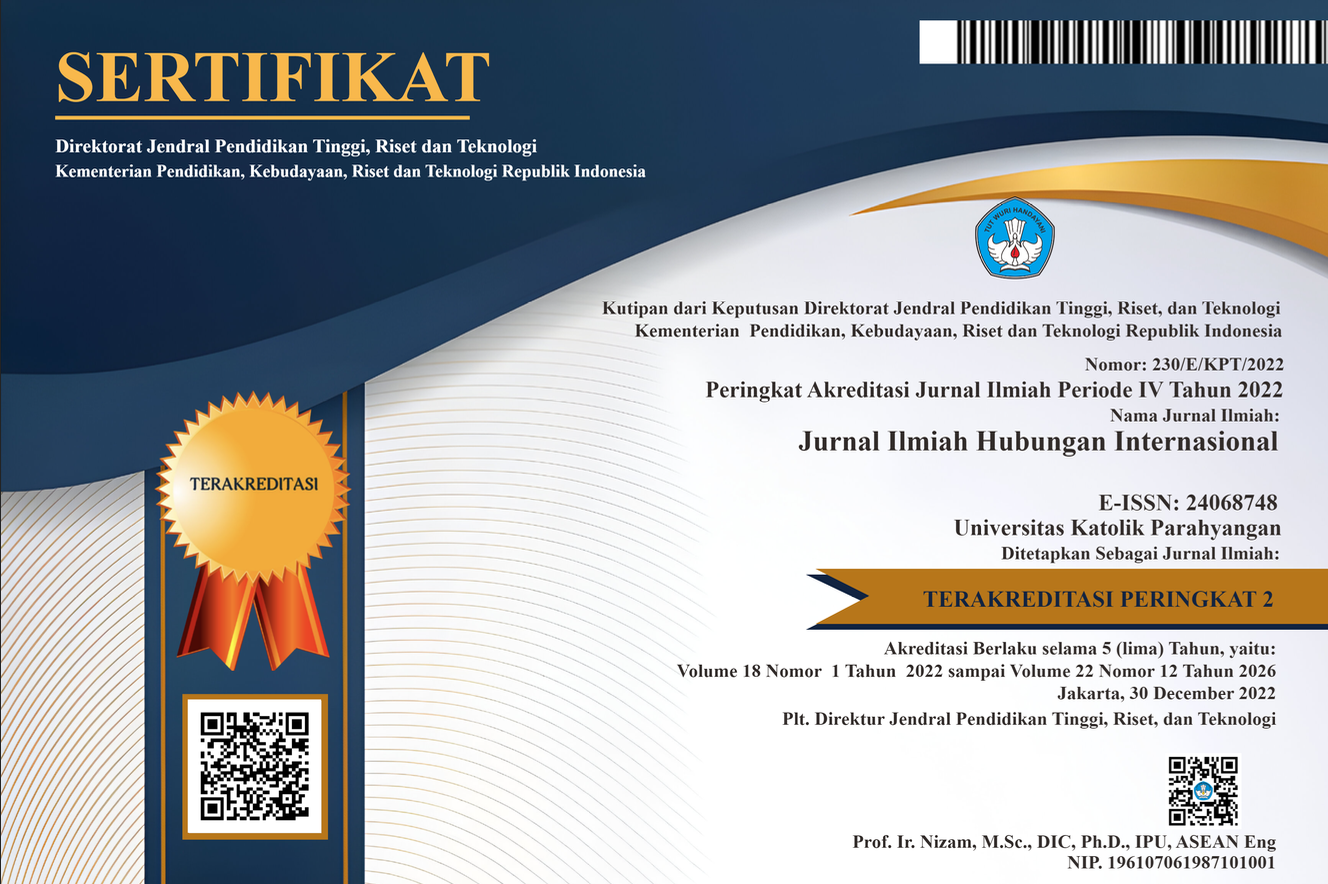Identification of New Southern Policy Narratives within ROK’s Digital Diplomacy toward ASEAN
DOI:
https://doi.org/10.26593/jihi.v18i1.5672.74-87Abstract
Republic of Korea (ROK) shifted its policy focus toward ASEAN through the New Southern Policy (NSP). As the core foreign policy to its southern neighbors, the NSP is envisioned to ‘elevate’ ASEAN status. The partnership has been backed by institutional and bureaucratic transformation to sustain the policy. Accordingly, ROK tapped on its digital resources to support this diplomatic engagement. Digital diplomacy, therefore, is an important strategy to engage the ASEAN public. However, does ROK's digital primacy is translated well to support NSP's digital diplomacy? This paper utilizes empirical explorative qualitative primary data collection of ROK's government tweets on two levels of analysis; towards domestic and foreign audiences. The finding confirms that domestic engagement is better. However, further scrutiny shows that within domestic narratives NSP is mainly used as a political tool. Meanwhile, on external engagement, this paper argues for ROK’s digital diplomacy deficit toward ASEAN. Not only does ROK's digital diplomacy strategy lack uniformity, but it also fails to create conversation about NSP.
Keywords : ASEAN, Republic of Korea, New Southern Policy, Digital Diplomacy, Twitter
Downloads
Published
How to Cite
Issue
Section
License
Copyright (c) 2022 Jurnal Ilmiah Hubungan Internasional

This work is licensed under a Creative Commons Attribution 4.0 International License.
This journal uses Creative Commons license (CC BY). We allow readers to read, download, copy, distribute, print, search, or link to the full texts of its articles and allow readers to use them for any other lawful purpose. The author must be aware that the article copyrights will be fully transferred to Jurnal Ilmiah Hubungan Internasional only if the article is accepted to be published in the journal through signing of the Copyrights Transfer Agreement. Authors are allowed to resend their manuscript to another journal or intentionally withdraw the manuscript only if both parties (JIHI and Authors) have agreed on the related issue. Once the manuscript has been published, authors are allowed to use their published article under Jurnal Ilmiah Hubungan Internasional copyrights.








